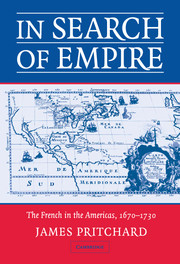Book contents
- Frontmatter
- Contents
- List of Illustrations
- List of Maps and Graphs
- List of Tables
- Preface
- Dates, Weights, Measures, and Currency
- List of Abbreviations
- Part I Colonies Formed
- 1 Colonial Populations
- 2 Settlements and Societies
- 3 Production
- 4 Trade and Exchange
- 5 Government and Politics
- Part 2 Colonies Defended
- Appendixes
- Bibliography
- Index
3 - Production
Published online by Cambridge University Press: 05 June 2012
- Frontmatter
- Contents
- List of Illustrations
- List of Maps and Graphs
- List of Tables
- Preface
- Dates, Weights, Measures, and Currency
- List of Abbreviations
- Part I Colonies Formed
- 1 Colonial Populations
- 2 Settlements and Societies
- 3 Production
- 4 Trade and Exchange
- 5 Government and Politics
- Part 2 Colonies Defended
- Appendixes
- Bibliography
- Index
Summary
INTRODUCTION
The Americas were more important as a source of commodities than as markets for manufactured goods. From a French or even a European perspective, American products can be divided into three categories. The first were those replacing or supplementing products already available. The second were Asian commodities successfully transferred to America, and the third comprised indigenous American products wholly unknown in the Old World. Combined with demographics, commodity production for export (or in the case of Canada not for export) shaped colonial societies more forcefully than is often imagined.
Historians sometimes forget that early explorers made as much of the familiar and the commonplace (fish, furs, cereals, grapes, and nuts) found in the New World as of the exotic and strange, and that propagandists often stressed the easy acquisition of the former. After gold and silver, fish were the first goods sought in the New World. Indeed, fish may have preceded gold as the first New World commodity hunted by Europeans. Though America was filled with as many trees as the North Atlantic was filled with fish, timber, potash, and other forest products proved too costly to transport. For a long time only dye woods from Central and South America could carry the freight charges from the New World to the Old. Furs became a more significant commodity.
- Type
- Chapter
- Information
- In Search of EmpireThe French in the Americas, 1670–1730, pp. 123 - 188Publisher: Cambridge University PressPrint publication year: 2004



